
Lisbon Summer School on Speech Acts in Public Discourse: Normative Questions
23-25 June 2022, NOVA Institute of Philosophy, NOVA University Lisbon
Theme
The summer school is thematically related to the workshop on Norms of Public Argument: A Speech Act Perspective, held immediately after the summer school (June 27-29). Its focus is on the normativity of speech acts – and how it is subverted for abusive or manipulative purposes.
Both events aim to use the framework of speech act theory to understand the broadly construed normativity of disputes (“argument” in one sense) and reasoning (“argument” in another sense) in the public sphere. We preserve the ambiguity of the natural-language “argument” to capture the broad range of communicative phenomena where normative aspects of discourse are particularly at stake. Indeed, disputes as breakdowns of communication reveal the norms and sanctions governing our linguistic exchanges. We believe that speech act theory, which is enjoying nothing short of a revival today, provides a promising framework for combining insights from philosophy, pragmatics, argumentation theory, legal theory, and other disciplines studying the normative aspect of public argument.
Our focus is on the variety and dynamics of norms governing argumentative practices. In other words, we want to examine and catalogue the mechanisms that underlie their enactment, persistence, and evolution as well as the various ways in which they shape our discursive practices. Trainees will be introduced to the various ways the normativity of communicative acts can be understood: what does it mean for an illocutionary act to be what it is; how and why do we accommodate implicit parts of our communication; and what kind of jobs speech acts of various kinds do in social interaction from the viewpoint of cultural (rather than genetic) evolution.
Against this normative background, various forms of communicative exploitation will be discussed: the way multiple forms of toxic speech emerge and how they can be challenged with counterspeech; how communicative norms can be enacted, especially via covert exercitive mechanisms; how communication via linguistic and visual dogwhistles exploits the norms of public communication.
Trainers
Mary Kate McGowan, Wellesley College, USA
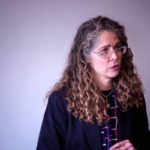 Mary Kate McGowan is the Margaret Clapp ’30 Distinguished Alumna Professor of Philosophy at Wellesley College. McGowan specializes in studying the subtle ways that speech can be used to alter normative facts and how this mechanism may be involved in the perpetuation of unjust social systems. She argues that conversational contributions enact normative fact in a way that is not, at the surface, visible. Her more recent work has generalized this phenomenon to settings that are not entirely conversational. In Just Words: On Speech and Hidden Harm (Oxford 2019), McGowan argues that sexist speech, some pornography, and some types of hate speech are much more harmful than are currently recognized.
Mary Kate McGowan is the Margaret Clapp ’30 Distinguished Alumna Professor of Philosophy at Wellesley College. McGowan specializes in studying the subtle ways that speech can be used to alter normative facts and how this mechanism may be involved in the perpetuation of unjust social systems. She argues that conversational contributions enact normative fact in a way that is not, at the surface, visible. Her more recent work has generalized this phenomenon to settings that are not entirely conversational. In Just Words: On Speech and Hidden Harm (Oxford 2019), McGowan argues that sexist speech, some pornography, and some types of hate speech are much more harmful than are currently recognized.
Jennifer Saul, University of Waterloo, CA
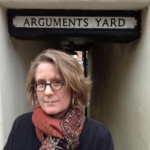 Jennifer Saul is Professor of Social and Political Philosophy of Language at the University of Waterloo. Her primary interests are in Philosophy of Language, Feminism, Philosophy of Race, and Philosophy of Psychology. Her current work is on racism, sexism, and conspiracism, and blatant falsehood in political speech. Her most recent book was “Lying, Misleading and What is Said: An Exploration in Philosophy of Language and in Ethics” (OUP2012), and she is currently completing a new book, “Dogwhistles and Figleaves: Racist and Conspiracist Techniques for Saying the Quiet Part Loud”.
Jennifer Saul is Professor of Social and Political Philosophy of Language at the University of Waterloo. Her primary interests are in Philosophy of Language, Feminism, Philosophy of Race, and Philosophy of Psychology. Her current work is on racism, sexism, and conspiracism, and blatant falsehood in political speech. Her most recent book was “Lying, Misleading and What is Said: An Exploration in Philosophy of Language and in Ethics” (OUP2012), and she is currently completing a new book, “Dogwhistles and Figleaves: Racist and Conspiracist Techniques for Saying the Quiet Part Loud”.
Mitchell Green, University of Connecticut, USA
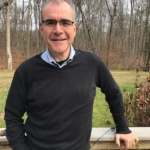 Mitchell Green is a Professor of Philosophy at the University of Connecticut. His research interests are in Philosophy of Language, Philosophy of Mind, and Aesthetics. His current research includes the evolutionary biology of communication, speech acts and their role in conversation, empathy, self-expression, self-understanding, and the epistemic value of fiction. He has published Self-Expression (Oxford, 2007), Moore’s Paradox: New Essays on Belief, Rationality and the First Person (Oxford, co-edited with J. Williams, 2007), Know Thyself: The Value and Limits of Self-Knowledge (Routledge, 2018), and The Philosophy of Language (Oxford, 2021). A recent issue of the journal Organon Filozofia (vol. 28, 2021), entitled The Origins of Meaning and the Nature of Speech Acts, edited by M. Witek, contained original articles by six other scholars on aspects of Green’s research on meaning and speech acts.
Mitchell Green is a Professor of Philosophy at the University of Connecticut. His research interests are in Philosophy of Language, Philosophy of Mind, and Aesthetics. His current research includes the evolutionary biology of communication, speech acts and their role in conversation, empathy, self-expression, self-understanding, and the epistemic value of fiction. He has published Self-Expression (Oxford, 2007), Moore’s Paradox: New Essays on Belief, Rationality and the First Person (Oxford, co-edited with J. Williams, 2007), Know Thyself: The Value and Limits of Self-Knowledge (Routledge, 2018), and The Philosophy of Language (Oxford, 2021). A recent issue of the journal Organon Filozofia (vol. 28, 2021), entitled The Origins of Meaning and the Nature of Speech Acts, edited by M. Witek, contained original articles by six other scholars on aspects of Green’s research on meaning and speech acts.
Biancamaria Cepollaro, University Vita-Salute San Raffaele, IT
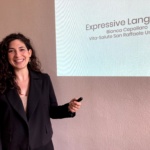 Bianca Cepollaro is Assistant Professor at Vita-Salute San Raffaele University, Faculty of Philosophy. She earned a PhD in Philosophy (Institut Jean Nicod, ENS, Paris) and Linguistics (Scuola Normale Superiore, Pisa). She was a post-doc fellow at IFILNOVA (Lisbon), and at the University of Milan. She is interested in social philosophy of language, pragmatics, metaethics and experimental philosophy. Her research focuses on expressives, toxic speech, and counterspeech.
Bianca Cepollaro is Assistant Professor at Vita-Salute San Raffaele University, Faculty of Philosophy. She earned a PhD in Philosophy (Institut Jean Nicod, ENS, Paris) and Linguistics (Scuola Normale Superiore, Pisa). She was a post-doc fellow at IFILNOVA (Lisbon), and at the University of Milan. She is interested in social philosophy of language, pragmatics, metaethics and experimental philosophy. Her research focuses on expressives, toxic speech, and counterspeech.
Maciej Witek, University of Szczecin, PL
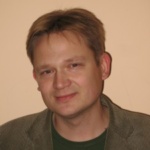 Maciej Witek is Head of the Institute of Philosophy and Cognitive Science at the University of Szczecin (Poland) and the coordinator of the Cognition & Communication Research Group (CCRG) (http://ccrg.usz.edu.pl/). His main areas of research are pragmatics and philosophy of language, with a special emphasis on speech act theory. In his work, he uses the Austinian framework to account for discursive phenomena such as accommodation, expressive dimension of speech, irony, linguistic underdeterminacy, presuppositions, and meaning negotiation. His recent publications include “Illocution and accommodation in the functioning of presumptions” (Synthese, 2021), “Self-Expression in Speech Acts” (Organon F, 2021), and “Irony as a speech action” (Journal of Pragmatics, 2022).
Maciej Witek is Head of the Institute of Philosophy and Cognitive Science at the University of Szczecin (Poland) and the coordinator of the Cognition & Communication Research Group (CCRG) (http://ccrg.usz.edu.pl/). His main areas of research are pragmatics and philosophy of language, with a special emphasis on speech act theory. In his work, he uses the Austinian framework to account for discursive phenomena such as accommodation, expressive dimension of speech, irony, linguistic underdeterminacy, presuppositions, and meaning negotiation. His recent publications include “Illocution and accommodation in the functioning of presumptions” (Synthese, 2021), “Self-Expression in Speech Acts” (Organon F, 2021), and “Irony as a speech action” (Journal of Pragmatics, 2022).
Marcin Lewiński, NOVA University of Lisbon, PT
 Marcin Lewiński is an assistant professor in the NOVA Institute of Philosophy and the Department of Communication at the NOVA University Lisbon, Portugal. He completed his PhD in argumentation theory at the University of Amsterdam (2010). His work focuses on the basic issues in the philosophy of language and argumentation theory such as rationality of everyday conversations, practical reasoning, pragmatic meaning, social and strategic aspects of speech acts, fallacies. He teaches Philosophy of Communication and Argumentation courses and supervises PhD students and post-doc researchers. He is the Chair of the Horizon 2020 COST Action project CA17132, “European Network for Argumentation and Public Policy Analysis” (2018-2023), where philosophical and linguistic concepts and methods are applied to a critical study of public argument. His most recent publications include papers on “Illocutionary pluralism” (Synthese, 2021) and on “Conclusions of practical argument: A speech act analysis” (Organon F, 2021).
Marcin Lewiński is an assistant professor in the NOVA Institute of Philosophy and the Department of Communication at the NOVA University Lisbon, Portugal. He completed his PhD in argumentation theory at the University of Amsterdam (2010). His work focuses on the basic issues in the philosophy of language and argumentation theory such as rationality of everyday conversations, practical reasoning, pragmatic meaning, social and strategic aspects of speech acts, fallacies. He teaches Philosophy of Communication and Argumentation courses and supervises PhD students and post-doc researchers. He is the Chair of the Horizon 2020 COST Action project CA17132, “European Network for Argumentation and Public Policy Analysis” (2018-2023), where philosophical and linguistic concepts and methods are applied to a critical study of public argument. His most recent publications include papers on “Illocutionary pluralism” (Synthese, 2021) and on “Conclusions of practical argument: A speech act analysis” (Organon F, 2021).
Raymond Drainville, University of Waterloo, CA
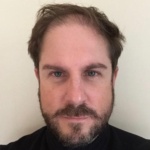
Ray is an assistant professor at the University of Waterloo’s Stratford School of Interaction Design and Business. He concentrates on digital media and visual culture in digital and other media spheres. He takes an iconological approach for understanding the resonances people express with pictures they share online and also works on critical engagements with machine learning.
Thursday, June 23
9:30 – 10:00 Registration / Opening
10:00 – 11:00 Session IA Marcin Lewiński (Lisbon, PT): Basic norms of illocution
11:00 – 11:30 Coffee break
11:30 – 13:00 Session IB Maciej Witek (Szczecin, PL): Illocution and accommodation
13:00 – 14:00 Lunch
14:00 – 15:30 Session II Bianca Cepollaro (Milan, IT): Toxic speech and counterspeech
15:30 – 16:00 Coffee break
16:00 – 17:00 Session II continued
Friday, June 24
10:00 – 11:00 Session III Mitchell Green (UConn Storrs, US): Speech act norms: A culture-evolutionary perspective
11:00 – 11:30 Coffee break
11:30 – 13:00 Session III continued
13:00 – 14:00 Lunch
14:00 – 15:30 Session IV Jennifer Saul (Waterloo, CA): Saying the quiet part loud: How Figleaves facilitate the rise of blatant racism and falsehood (online)
15:30 – 16:00 Coffee break
16:00 – 17:00 Session IV continued
Saturday, June 25
10:00 – 11:00 Session V Mary Kate McGowan (Wellesley, US): On varieties of norm enactment
11:00 – 11:30 Coffee break
11:30 – 13:00 Session V continued
13:00 – 13:15 Closing
13:15 – 14:15 Lunch
Participants in the Training School are encouraged to stay over in Lisbon and attend the workshop on Norms of Public Argument: A Speech Act Perspective, held immediately after the summer school (Monday-Wednesday, June 27-29).
Target audience
The training school is intended for both academics and practitioners interested in the norms of public argumentation and their abuses, approached from a philosophical perspective.
Please note that applying for the training school does not automatically guarantee access to it. In case of high application numbers priority will be given to PhD students or early career researchers (max. 8 years since PhD award).
Funding
Participants affiliated to an academic institution or company from a COST Full Member Country, a COST Cooperating Member Country or from a COST Near Neighbour Country may apply for a bursary. The exact value of the bursary depends on expected costs for travel and accommodation. The maximum amount that may be reimbursed will be communicated to the participants when notified of their acceptance to the training school.
Information about the venue
ArgLab, NOVA Institute of Philosophy, Campus de Campolide, NOVA University Lisbon, Portugal
Depending on how the situation with the COVID-pandemic develops, a hybrid or online modality will be considered.
Training School contacts:
Local organizer: Dr. Marcin Lewinski
NOVA Institute of Philosophy
School of Social Sciences and Humanities (NOVA FCSH)
NOVA University Lisbon
Colégio Almada Negreiros
Campus de Campolide
1099-032 Lisbon
PORTUGAL
Training school coordinator: Dr. Gabrijela Kišiček
Faculty of Humanities and Social Sciences
University of Zagreb
Ivana Lucica 3
10000 Zagreb

